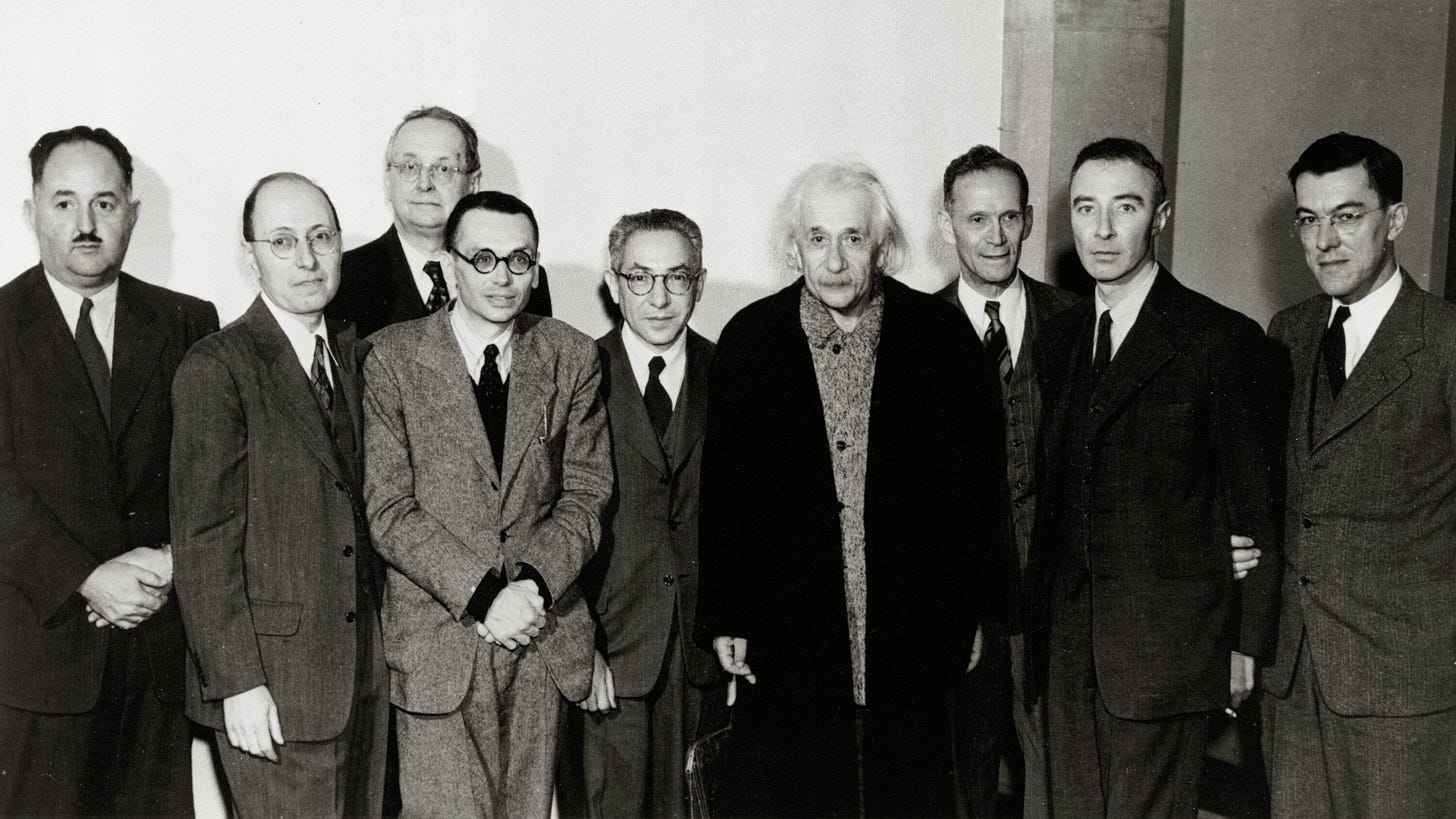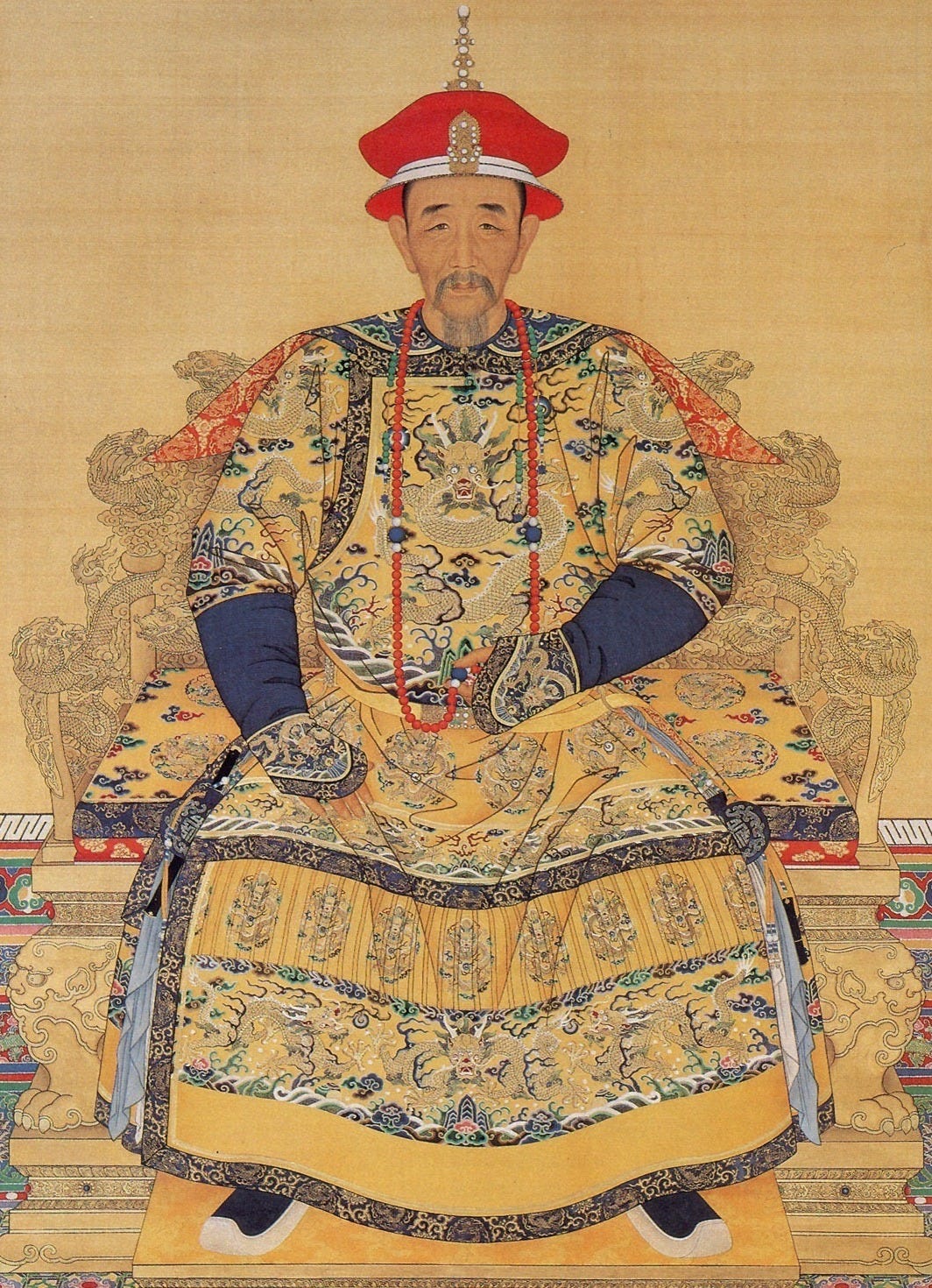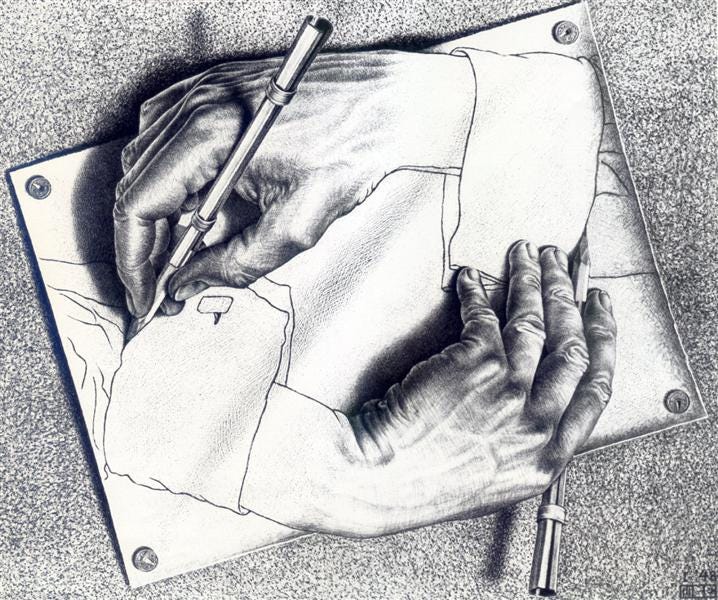The Explanatory Power of Rebellious Elites
Today's fringe is tomorrow's establishment
There is Elite Human Capital (EHC), as Richard Hanania calls it, and the Distributed Idea Suppression Complex (DISC), Eric Weinstein’s term. Or, as Rob Henderson puts it, we can simply call them ‘the elite.’ For now, we will define ‘the elite’ as a network of individuals and institutions with disproportionate influence. They possess qualities like high human capital (often Ivy League educated) and wield outsized control over cultural and intellectual narratives, giving them the power to suppress or amplify ideas. You find them in prestigious universities, legacy media outlets, and the government, to name just a few.
Given this group’s control over ‘the narrative,’ it’s worth exploring how and why they change their beliefs. That is, after all, the painful—or exciting—part, depending on your perspective. Calculus might be the best tool for studying processes of change, but that doesn’t mean social scientists can’t take a crack at it! At the end of the day, that’s where the action is. So let’s jump in.
We know why viruses spread. They—or more specifically, their genes—desire to live, secondary to their ultimate goal of procreation and propagation. Simple. Finding hosts thus makes perfect sense. Optimizing for entry—whether through air or skin—is logical, driven by a basic desire: persist and procreate.
Enough biology. This is Substack. If I don’t start talking about politics, you’ll soon lose interest. So, elites are not viruses, of course. I’m not that mean. Secondly, their goals are more vague and definitely more heterogeneous.
Let’s think broadly. What caused the shift from elites promoting religious authority to promoting secularism and individualism post-Renaissance? In the 19th century, techno-optimism ran wild. By the ’60s, environmentalism reigned supreme. More recently, from 2010 to 2020, Wokeism—or social justice, whatever you want to call it—conquered elite culture. Wokeism netted win after win for a decade but has recently started to lose its grip on elite culture. Why?
I’m not denying that these shifts are multi-causal. It might even be over-determined, as Peter Thiel would say. But I’ll put forward this argument: elites are motivated by rebellion against the status quo. I don’t see many people focusing on this in the context of recent trends in elite behavior. This connects to Rob Henderson’s idea about luxury beliefs—a way to virtue signal their status. Status symbols used to be expensive clothes or finely carved furniture, but in recent years, elites have shifted to signaling their status through certain beliefs like economic Marxism, Libertarianism, and, of course, Wokeism.
The rub is that these luxury beliefs can end up being harmful to the masses since they have an outsized impact on government policy, with the best example being Marxism. But why do luxury beliefs change? Because elites need to separate themselves from the masses with luxury beliefs, and since they are outnumbered, the luxury beliefs they choose to adopt are highly correlated with their rebelliousness. I believe this has a lot of historical explanatory power, so without waiting, let’s use this new cultural lens to look at three major examples of this dynamic playing out in the last few years. We’ll start with Christianity, and then get into Wokeism vs. conservatism.
Example #1: Christianity has recently become more popular again. Bible sales are booming. Ten years ago, being an atheist was ‘the cool thing’; now it’s painfully conventional. The ‘Reddit Atheist’ is now a pejorative. I see a lot of people—from Richard Dawkins to Ross Douthat, Peter Thiel, Nick Fuentes, J.D. Vance, and even Bentham’s Bulldog(!)—all in the last one to five years converting, espousing Christianity, lamenting the loss of certain ‘Christian virtues,’ using the Bible as a lens to analyze current events, or simply congratulating Christians on all they’ve done for Western culture. Again, this is multi-causal. I’m sure you have your own reasons in your head. The world has gotten more chaotic; of course, that will raise Bible sales. But I sincerely believe that going from conventional to unconventional has caused a lot of elites to turn a sympathetic, sometimes attracted eye toward Christianity.
I see articles on Substack like ‘The Average Medieval Peasant was Smarter Then You’ (mostly a clickbait title, of course), which went incredibly viral on Substack. It argued, among other things, that the Catholic Church was pro-science, pro-university, and that medieval Catholic-run universities were actually very intellectually rigorous. What do you feel when you read that? Do you think it’s edgy, a little rebellious, even? It certainly feels like it to me. That is precisely why it went viral: because it’s defiant. That’s also part of the reason it was written, of course.
Example #2: Let’s move on to an even bigger shift in the last five years. Wokeism infiltrated America’s elite as a cultural rebellion, appealing to millennials seeking to challenge traditional power structures from a ‘bygone era’—like capitalism, colonialism, and patriarchy. It was cool because it was countercultural and simultaneously allowed the elite to differentiate themselves from the masses, reinforcing the elite/small folk dichotomy. Common people were caught unaware that Latinx was in and microaggressions were out. But of course, this could only last for so long. Wokeism was always its own worst enemy; its incessant need to convert others inevitably led to it becoming the mainstream establishment. And now, it’s so uncool that it seems hysterical to imagine it was once considered cool.
In 2025, we’re again experiencing the inevitable sea change among elites. Conservatism, once the establishment, has reclaimed its role as the countercultural rebellion: conservative David against the woke Goliath. First, it was Rogan, then Musk, now Zuckerberg and Bezos. AOC removed the pronouns from her Twitter bio. Target displayed ‘Merry Christmas’ instead of ‘Happy Holidays’ this year. Yes, Wokeism has peaked. We are witnessing cultural turnover in real time—the timeless cycle of rebellion into establishment and back again into rebellion. These seasonal shifts will come and go like an old Broadway revival. Every 10 years or so, the same script plays out, with different casts, of course.
Some, like Allen Ginsberg, start out as rebels. In the mid-50s, he exploded onto the literary scene as part of the rebellious Beat movement. By the ’60s, however, he found himself part of the literary mainstream. So he joined headfirst into another rebellion as an older man, this time the hippie counterculture of the 1960s. Of course, the vast majority of those hippies became the establishment we see today in the boomer generation. I don’t think they’re going to pull a Ginsberg anytime soon, nor do I think the Woke mob will. Most successful rebels become the establishment; few revert back to their younger days.
Since this is a pretty interesting lens to view history from, we can also use it as a rough model to make predictions. It’s pretty simple. I expect conservatism, as it’s on the precipice of doing now, to complete the cycle of cultural backlash and become (once again) the establishment among most elite circles. A slow rebellion will start to brew at once. It’s a fool’s errand to predict what form it will take, but it will be fresh and interesting while also continuing long-running cultural trends. I also expect Christian virtues and, to a lesser extent, faith in God to increase in prominence online, along with dozens of cookie-cutter articles defending the Catholic Church’s record and writing about how ‘based’ Medieval Christian ethics were.
What other trends can you apply this lens to? If you have any ideas let me know in the comments.





Insofar as this explains what is currently happening psychologically among those plugged-in to elite circles, I really like it as a theory. However, I'm less clear about how to trace it back historically--what was the intellectual counterculture prior to progressive social beliefs and aggressive atheism? It doesn't seem like it can be environmentalism, since the two examples are hardly in opposition to it.
I feel like the economic story is clearer, in that the path from the Washington Consensus, to the protectionist-friendshoring backlash, and now back again for many people, is familiar to most.
Maybe "luxury beliefs" are a unique product of our time and you can't do this sort of deep historical tracing, but that would clash with the mention of 19th century techno-optimism. Would the theory hold up better if limited to this era, where genuine economic scarcity is just not a problem in these elite circles? I'd readily agree that material status symbols mean less now than they have throughout most of history.